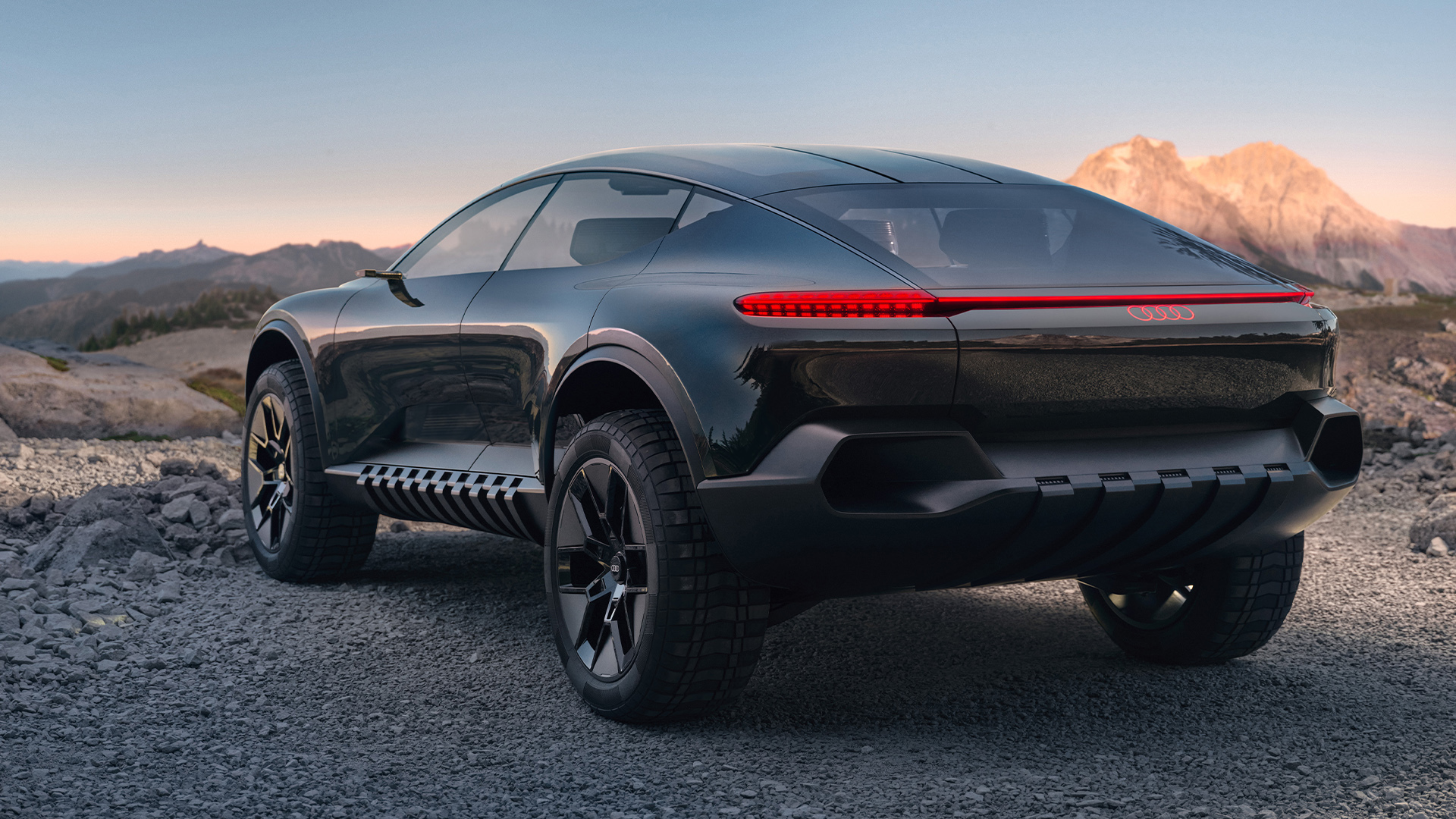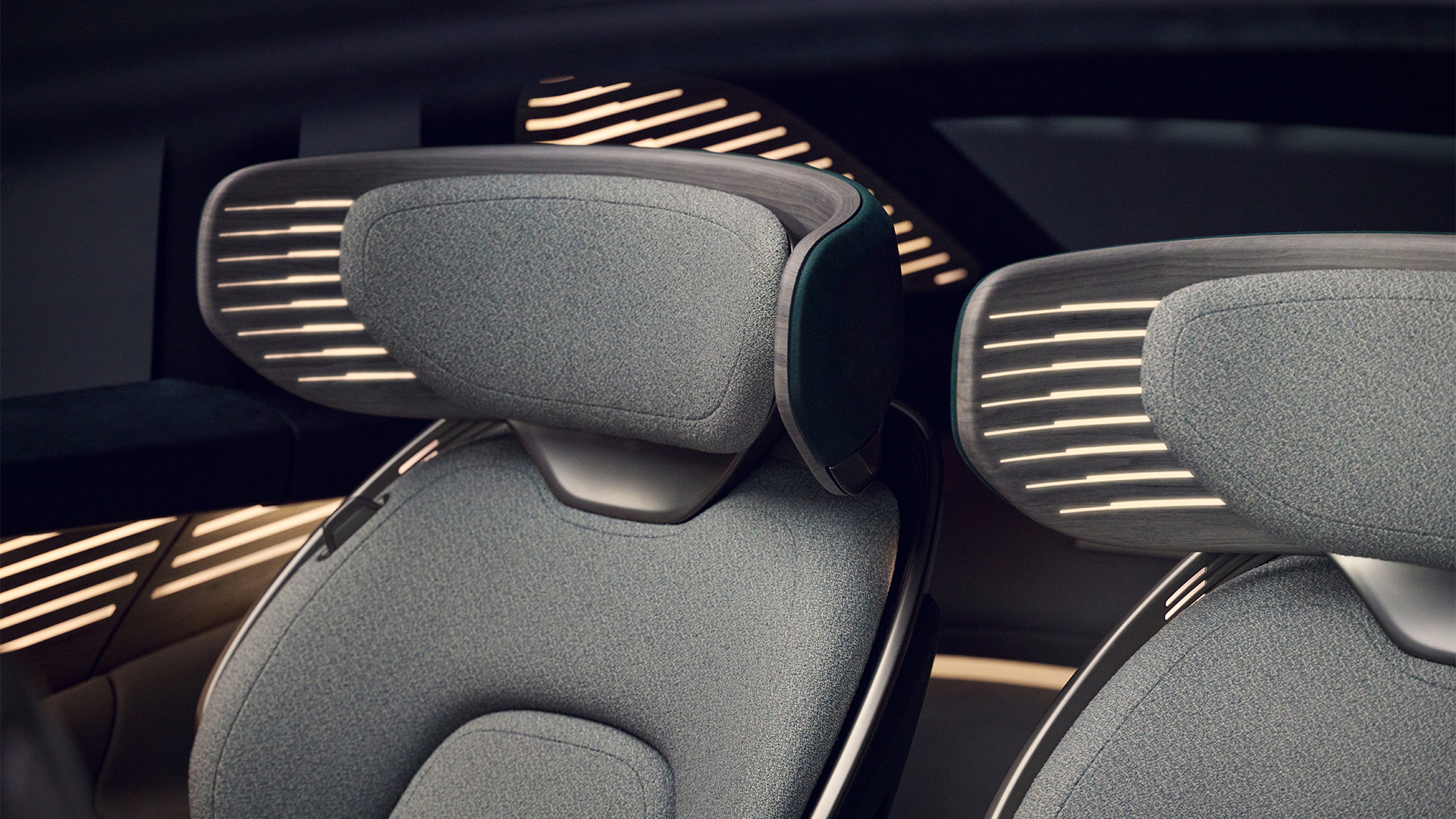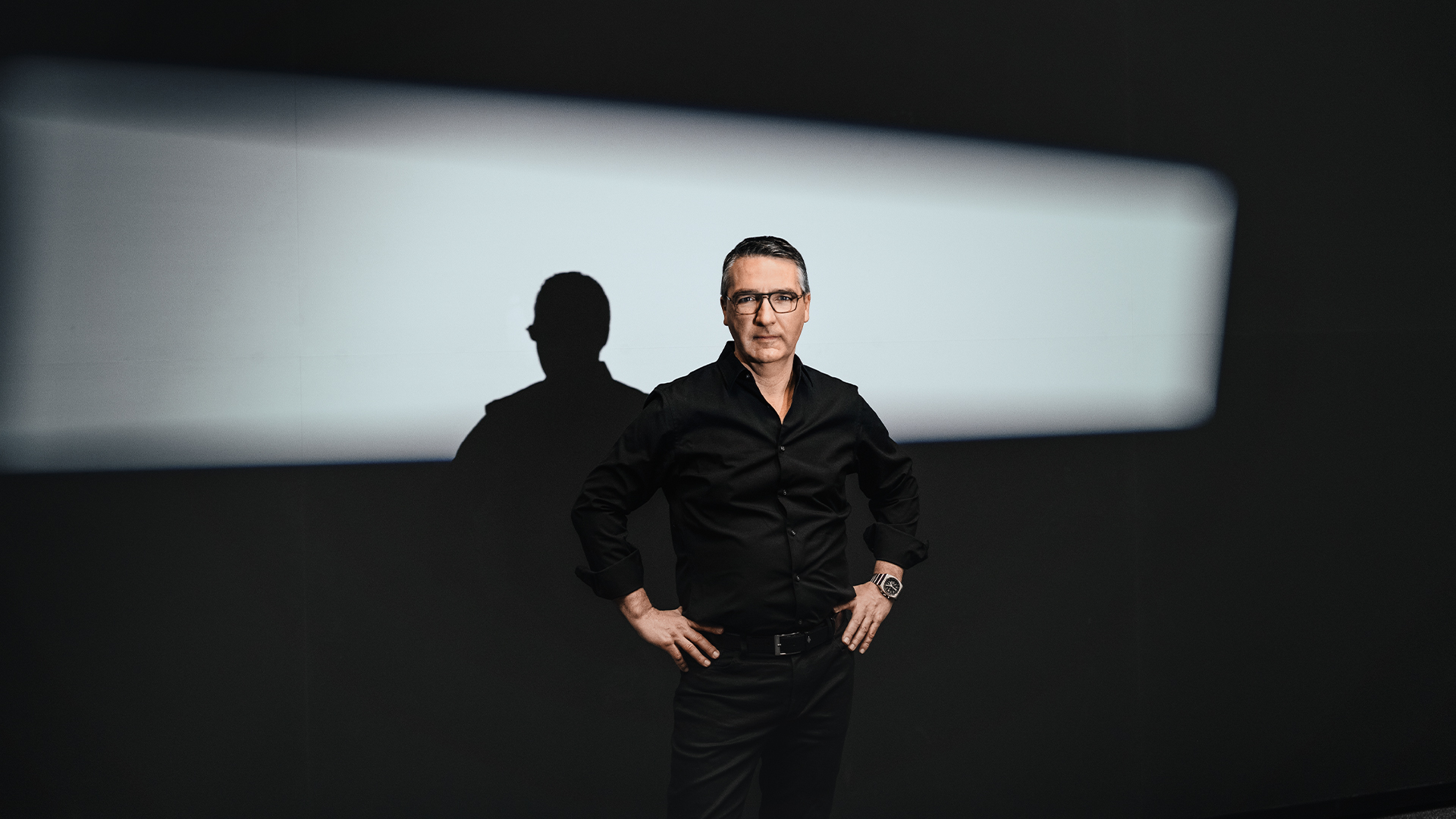Marc Lichte’s Audi e-design
Electric mobility is changing the automobile design of the future. Marc Lichte, head of Audi Design, uses the example of the Audi Q4 e-tron concept to talk about the key features of the exterior design on the Audi e-tron models.
The vehicle shown is a concept vehicle that is not available as a production vehicle.
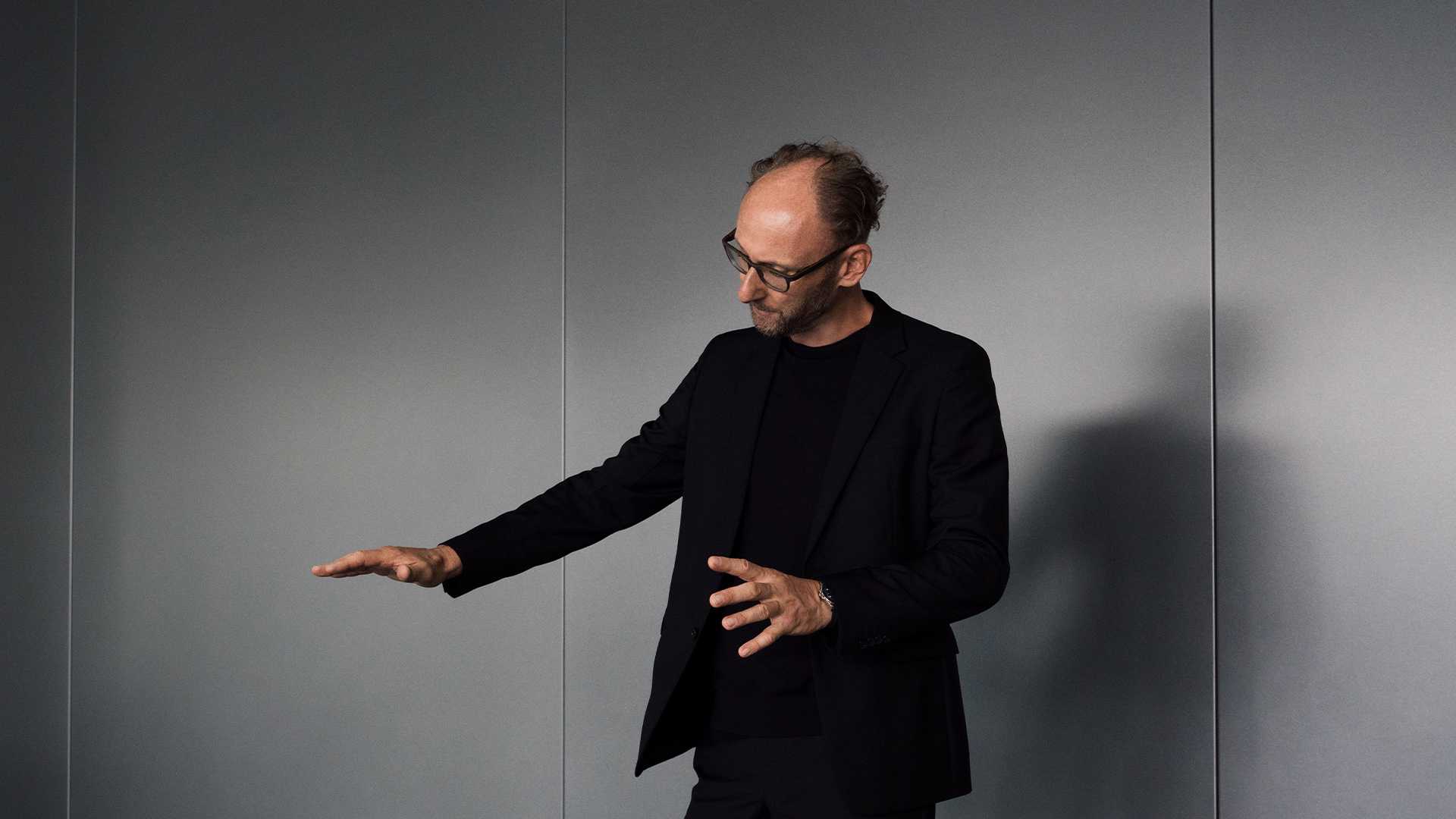
Marc Lichte, Head of Audi Design, shows the most important features in the exterior design of the Audi e-tron models.
Marc Lichte, Head of Audi Design, shows the most important features in the exterior design of the Audi e-tron models.
“There has never been a more exciting time to be a car designer. Right now is the best time to rethink and reconceive automobile design – in short, to take car design into the future. The electric mobility transformation is paving the way for this. The focus is shifting to the customer and their wishes. What is the intended use for the car? Long distance, city, leisure? How should the interior look? Should I be able to work, read, or sleep in it? And last of all, we designers then conceive the exterior.”
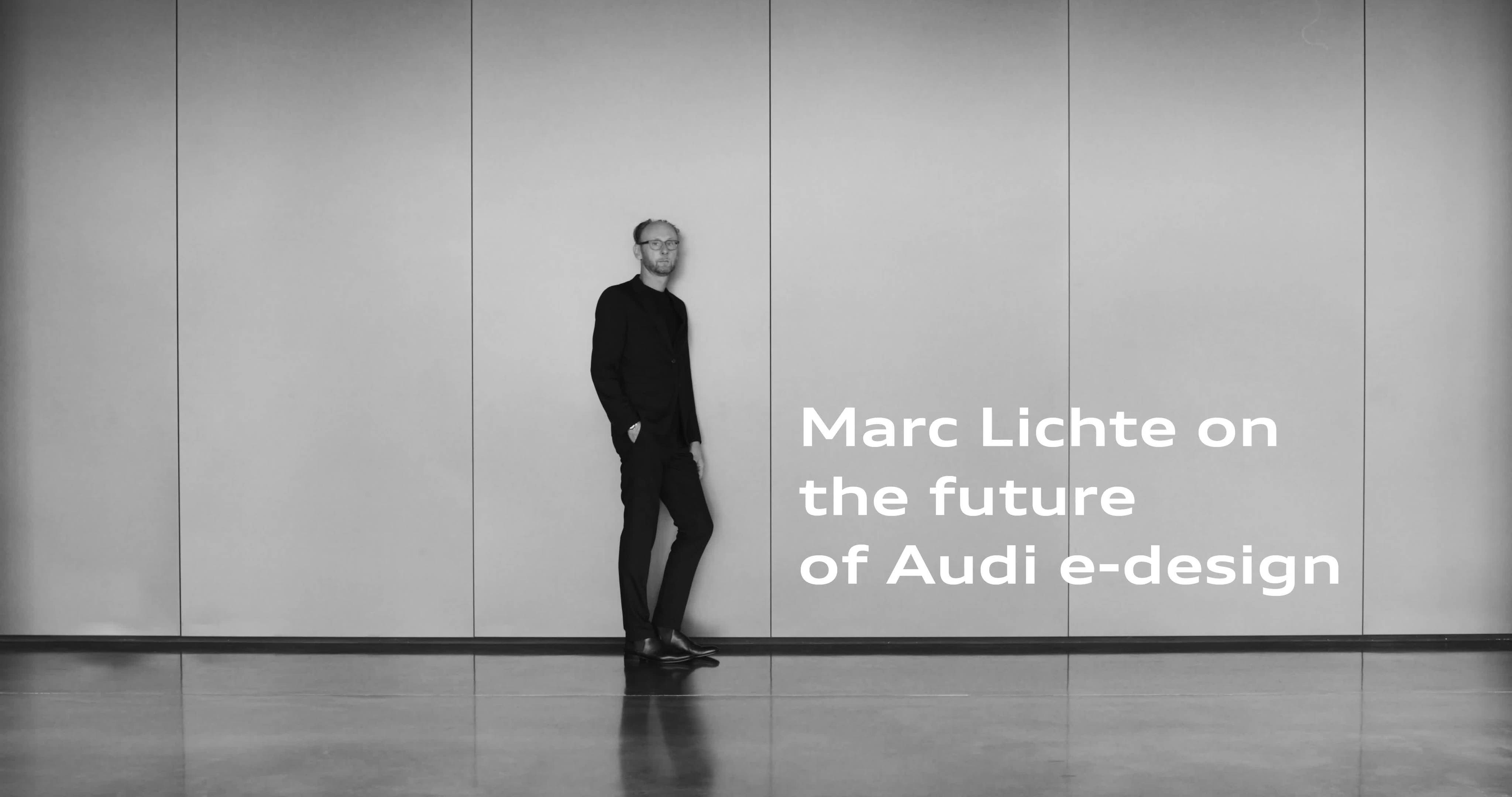
The magic of proportions
“The proportions form the basis of any good design. The technical platform for electric cars enables us designers to create vehicle proportions that we have long dreamed of. The electric motor on the Audi Q4 e-tron concept is mounted on the axles, the battery in the floor space in between, the vehicle cabin in the center grows in terms of its dimensions and shifts the larger wheels (needed to bear the weight) outward. The A-pillar moves much further forward – after all, there is no longer an engine under the hood. Huge wheelbase, huge wheels, small overhangs: These completely new proportions define the unique character of electric vehicles.”
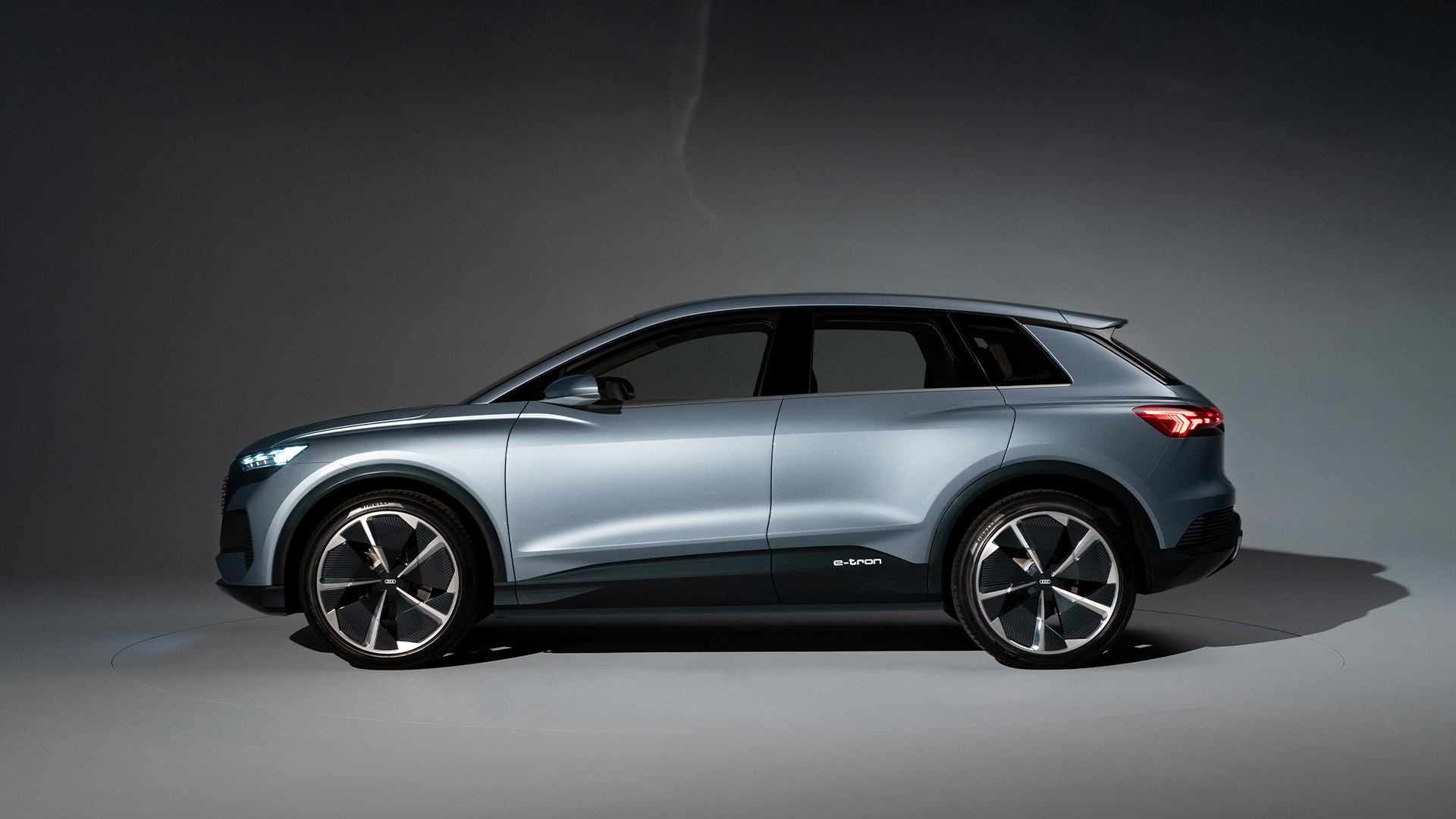
The Audi Q4 e-tron concept with the dream proportions of an electric car: long wheelbase, large wheels, small overhangs.
The Audi Q4 e-tron concept with the dream proportions of an electric car: long wheelbase, large wheels, small overhangs.
The face tells you it’s an Audi
“The Singleframe grille on the front is Audi’s signature; it also elevates the Audi Q4 e-tron concept as a face from the masses. The Audi Singleframe links the radiator above and below to form one unit. But what can be done when there is no longer a radiator on an electric vehicle? How do we show that it is an electric car, yet still an Audi? My team came up with an idea that is both simple and ingenious: The Singleframe grille is always black on an Audi with a combustion engine, because it is open and ventilates the radiator situated behind it. On the Audi e-tron the Singleframe is visually inverted. As a result, you can tell from a distance that it’s an Audi, but an electric one. The Singleframe lets an Audi be an Audi. Even an electric Audi.”
“Each of our designs must first and foremost radiate a presence: Here comes an Audi. But of course an electric car must also very clearly say: Here comes the future. And the future is digitalization – like the lights on the Audi e-tron. The production version of the Audi Q4 e-tron concept, for example, features digital daytime running lights. The great thing about them is that every customer can individually design the digital daytime running light graphics in the front headlights. One person might like three Xs in the light silhouette, while another may prefer a horizontal strip. This isn’t just personalization; above all else, it is digitalization made visible. It can also be seen in the taillights, which are linked by an animated light strip.
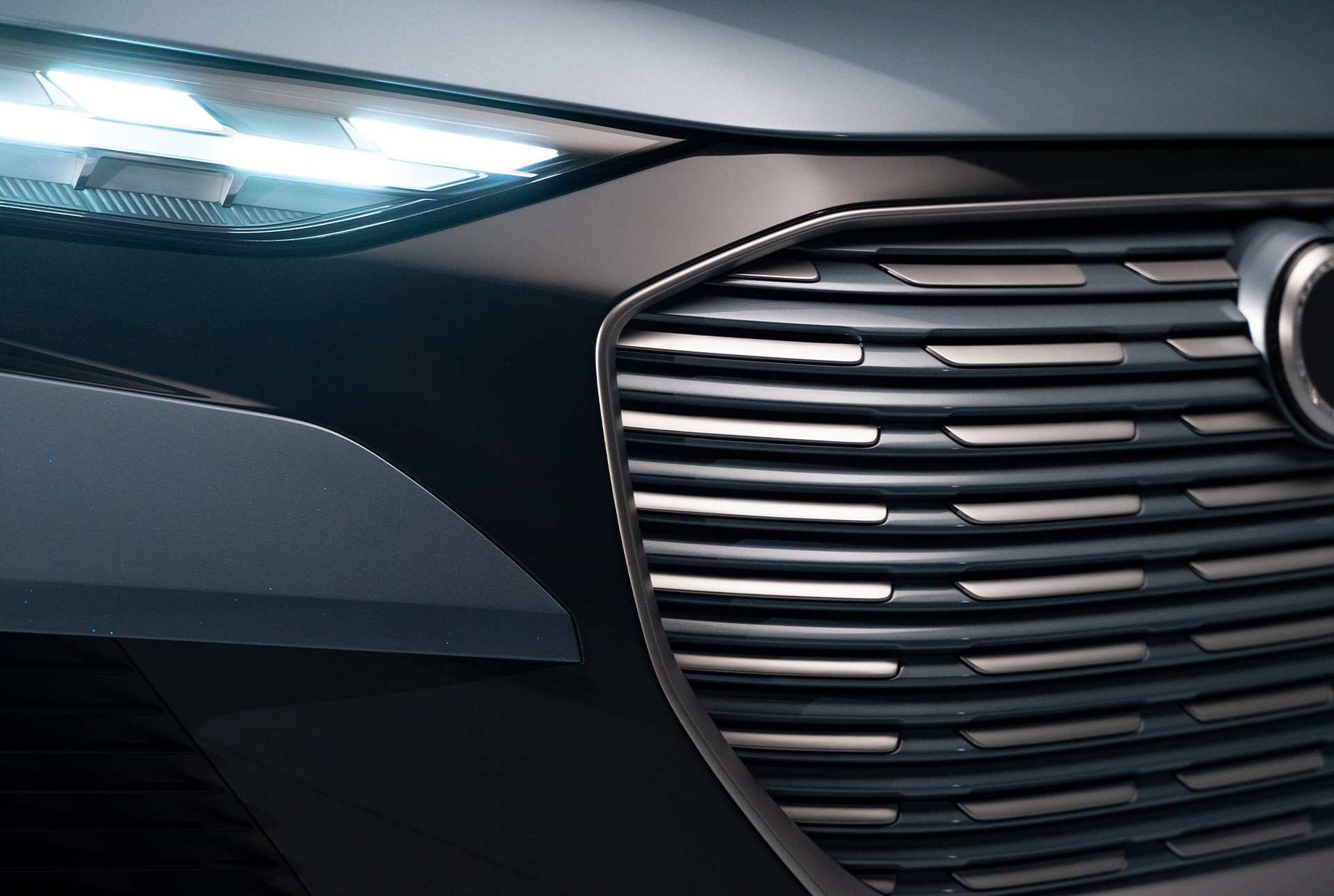
The face of every Audi e-tron: the enclosed Singleframe grille.
The face of every Audi e-tron: the enclosed Singleframe grille.
“When it comes to electric mobility, the heart of the vehicle is no longer the engine beneath the hood, but the battery in the floor of the vehicle. What is its capacity? How light is it? What is its range? Accordingly, the Audi Q4 e-tron concept has an expressively designed sill that very clearly signals the location of the car’s beating heart. The front hood on the e-tron has a much more sedate design. Power domes on the hood are a thing of the past.”
“An Audi with a combustion engine features a design with many hard edges. The Audi e-tron models of the future, meanwhile, have gentler and more defined muscles. As such, we are using the design of the vehicles to underline the evolution of the drive system. We are interrupting the shoulder line of the design, which ran along one height for decades, in the center of the vehicle’s side, shifting it further down, and accentuating the muscles of the vehicle silhouette at the front and rear – and thus all four wheels – with gentle lines. This is also reminiscent of the quattro drive system, which is deeply rooted in the Audi genes, because the all-wheel drive option is also available for the Audi e-tron.”
Aerodynamics are more important than ever
“It’s not only progressive design that is firmly rooted in the Audi marque, but also progressive thinking in terms of sustainability. It goes without saying that all Audi models are formed in a wind tunnel to make them as efficient as possible. Less wind resistance means fewer energy resources are needed for propulsion. That is why we are once again carefully focusing on aerodynamic design on all of our Audi e-tron models. On electric vehicles, the aerodynamics – along with many other factors – can increase the range. As designers, we see this as a clear obligation.”
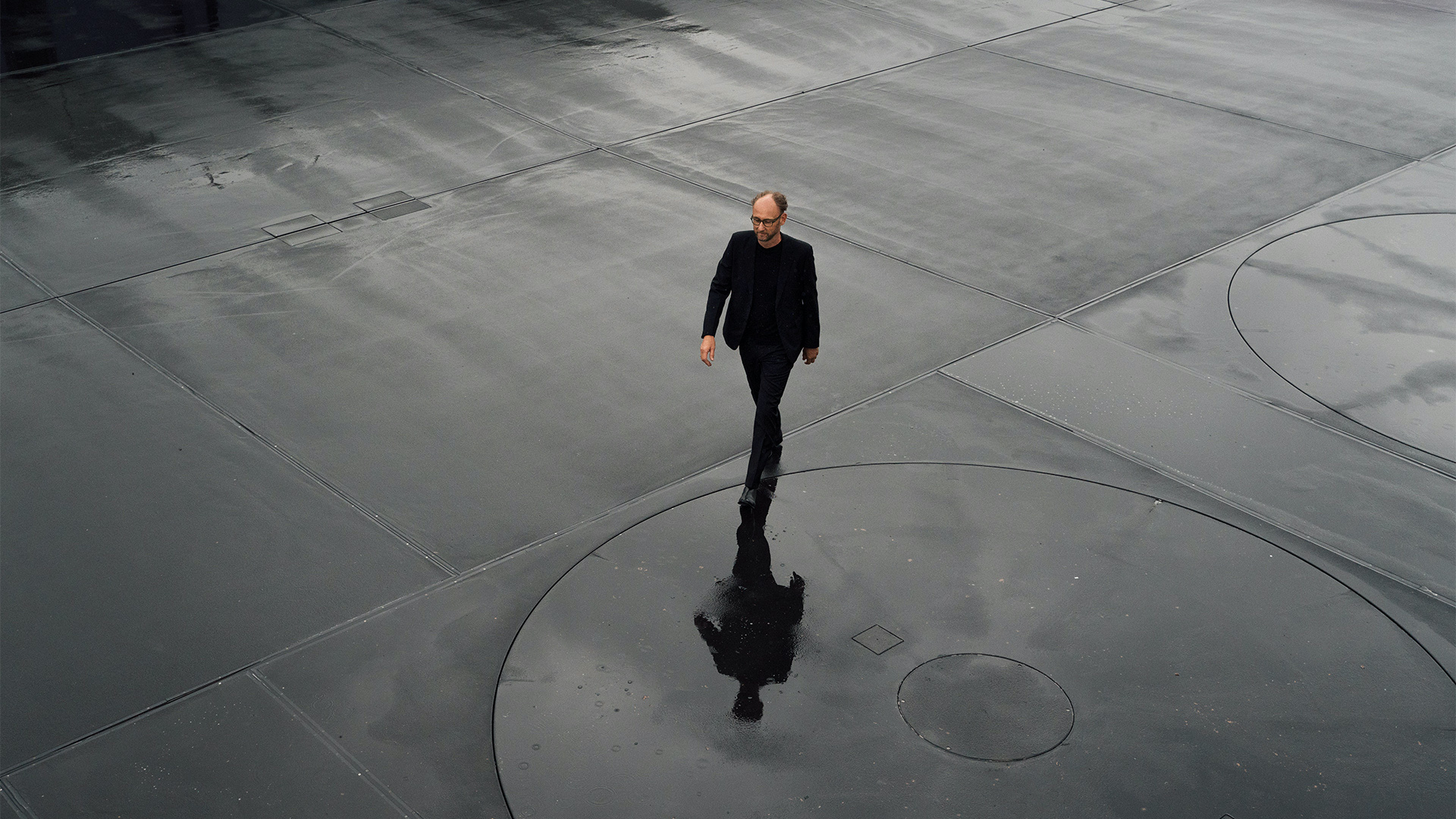
Marc Lichte has headed Audi Design since 2014.
Marc Lichte has headed Audi Design since 2014.
